We won an overtime thriller in Dallas on Sunday night. Looking at the civic data below of our two cities, I couldn’t help but reflect on the comparison we made two weeks ago when we played the Carolina Panthers. Dallas is, much like Charlotte, a classic Sunbelt city, while Philly is a classic Rustbelt city.
Between 1950 and 2010, Dallas grew from 430,000 to 1.2 million people, and from 112 to 340 square miles. During that same period Philadelphia declined from nearly 2.1 million to 1.5 million and remained the same size geographically. Dallas’s economy is based to a much greater extent on private employers, such as Walmart, American Airlines, AT&T, Texas Instruments, Tenet Healthcare, and, of course energy and energy-related industries. Philadelphia’s economy is based far more than Dallas’s or Charlotte’s on government and nonprofit employers.
While total unemployment in Philadelphia is above the national average (6.8 percent), Dallas is a bit below (4.1 percent)—and this is reflected in Dallas’s lower poverty rate and higher median incomes ($42,846 compared to $37,192 in Philadelphia).
But there’s more to a city than just its economic data, says Professor Richardson Dilworth of Drexel’s Center for Public Policy. “The dominant culture of Dallas is one that is uniquely uninterested in its history,” he explains. “There is no great way to measure this, but people who have written on the topic of Dallas history, and who have lived in Dallas, largely agree that Dallasites (or however they refer to themselves) are uniquely ignorant about the history of their city.”
Dilworth cites three books that make this case. Harvey Graff’s The Dallas Myth: The Making and Unmaking of an American City; Patricia Hill’s Dallas: The Making of a Modern City, and Michael Phillips’ White Metropolis: Race, Ethnicity and Religion in Dallas all identify a business elite that sought to forget about racial and labor strife and focus instead on new business opportunities.
“Philadelphia may be more expensive and have less employment opportunities, but certainly it has a stronger collective memory, and one in which conflict and violence are prominent themes,” says Dilworth. “It seems fair to say that, while more companies may have invested money in Dallas, more people have a personal investment in Philadelphia as a shared memory, and one in which the past is used in an attempt to grapple with serious issues of racial, ethnic, and class conflict—and, occasionally, even cooperation.”
Next week, we take on Miami.
Note: We play Dallas twice this season, but only count the city once in our Civic Scorecard.
Results
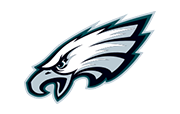
PhiladelphiaEagles |
|

DallasCowboys |
|
% BA or higher
24.4 |
7 POINTS
Cowboys |
% BA or higher
29.6 |
|
% Below poverty
27.2 |
7 POINTS
Cowboys |
% Below poverty
24.4 |
|
% Bike to work
2.1 |
7 POINTS
Eagles |
% Bike to work
0.2 |
|
% Moved to city in past year
4.6 |
7 POINTS
Cowboys |
% Moved to city in past year
6.0 |
|
Violent crime per 1,000 residents
11.0 |
7 POINTS
Cowboys |
Violent crime per 1,000 residents
6.6 |
|
% Volunteer
26.1 |
7 POINTS
Cowboys |
% Volunteer
27.6 |
|
% Voted in last mayoral election
25.5 |
7 POINTS
Eagles |
% Voted in last mayoral election
7.2 |
|
Income Inequality Index
.51 |
7 POINTS
Eagles |
Income Inequality Index
.54 |
|
% of population aged 22 to 34
22.5 |
7 POINTS
Cowboys |
% of population aged 22 to 34
23.58 |
|
Final Score
21 |
Dallas
Cowboys |
Final Score
42 |
Sep. 14 |
21-35
Falcons |
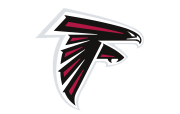
Falcons |
Sep. 20 |
21-42
Cowboys |

Cowboys |
Sep. 27 |
28-35
Jets |
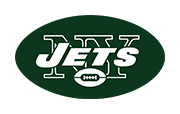
Jets |
Oct. 04 |
14-42
Redskins |
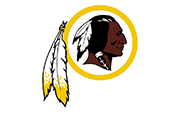
Redskins |
Oct. 11 |
21-42
Saints |

Saints |
Oct. 19 |
28-35
Giants |
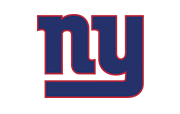
Giants |
Oct. 25 |
21-35
Panthers |

Panthers |
Nov. 08 |
21-42
Cowboys |

Cowboys |
Nov. 15 |
56-0
Eagles |
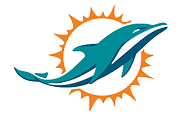
Dolphins |
Nov. 22 |
35-28
Eagles |
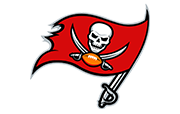
Buccaneers |
Nov. 26 |
42-7
Eagles |
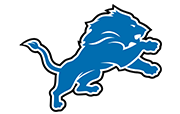
Lions |
Dec. 06 |
28-35
Patriots |

Patriots |
Dec. 13 |
42-21
Eagles |
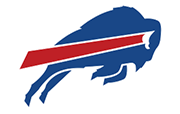
Bills |
Oct. 19 |
35-28
Eagles |

Cardinals |
Dec. 26 |
14-42
Redskins |

Redskins |
Jan. 03 |
35-28
Eagles |

Giants |
Civic Record:
EAGLES |
Wins
5 |
Losses
7 |
Upcoming Games:
Data compiled by Ken Gross, Quantitative Innovations.
All data from the U.S. Census American Community Survey 2011-2013 except: Volunteer rates; crime stats.
Voter turnout rates from Philadelphia’s 2015 general election; Dallas’s 2015 general election.
More info on the GINI Index of Income Inequality.
* All team logos are property of the NFL and their respective franchises.
Homepage photo: Brian Garfinkel/Philadelphia Eagles




